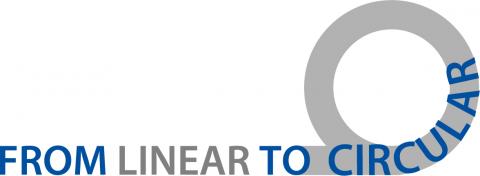Amsterdam City’s circular economy strategy 2020-2025 shapes itself on the ‘Doughnut’ model
On 8 April 2020, the College of Mayor and Alderpersons approved the Amsterdam Circular 2020-2025 strategy. The strategy makes use of an adapted version of British economist Kate Raworth’s “doughnut model”. The model describes how societies and businesses can contribute to economic development while still respecting the limits of the planet and the community.
To reach these goals, the City will need to shake its economic system to the core; reviewing the way it produces, consumes and processes materials. This Circular strategy covers a large number of measures for businesses, the City and its residents: from waste reduction to resource management to circular construction.
More information can be found here: https://www.amsterdam.nl/en/policy/sustainability/circular-economy/
WCEF2020 conference in Toronto postponed to 2021
The major circular economy event, the World Circular Economy Forum, will be postponed until 2021 as a result of the COVID-19 pandemic. A virtual WCEF online event in September 2020 will address how the circular economy can help reboot the economy.
Rescheduling the annual forum to 2021 will ensure that all parties can participate and focus on the issues to be discussed at this vital conference, as well as allow more time for the necessary preparations to take place.
For more information please click here: https://circulareconomy.europa.eu/platform/en/news-and-events/all-news/wcef2020-conference-toronto-postponed-2021
EIB Guide to Circular Economy
The EIB has already supported the transition to a circular economy with over €2.1 bn in project financing, including the first of a kind Aanekoski bio-pulp mill in Finland, the largest circular investment to date in Europe. An overview of such projects, alongside the bank’s perception of the drivers to a circular economy (resource opportunities, technological development and the emerging socio-economic paradigm of sustainable development), corresponding opportunities and potential business models (circular design, value recovery, optimal use & circular support) is provided in this guide.
More information can be found in the following link: https://circulareconomy.europa.eu/platform/en/knowledge/eib-guide-circular-economy
TU Delft Online Learning: Sustainable Packaging in a Circular Economy
Delft University of Technology (TU Delft) is offering a 100 % online course on Sustainable Packaging in a Circular Economy. Students and professionals with basic knowledge of the circular economy and an interest in or experience of packaging can start studying anytime, at the time and place of their choosing. The course material is accessible 24/7. This is a Massive Open Online Course (MOOC) that runs on edX.
The course programme includes:
Business strategies that support sustainable packaging systems
Opportunities for designing with renewable, bio-based materials
Best practices through case studies with industry frontrunners
How circular design principles can be applied to create ‘closed loop’ packaging systems.
For more information and related video, click here: https://circulareconomy.europa.eu/platform/en/news-and-events/all-news/tu-delft-online-learning-sustainable-packaging-circular-economy
Save the Date: Circular Economy Stakeholder Conference 4-5 May 2020
The annual Circular Economy Stakeholder Conference, jointly organized by the European Commission and the European Economic and Social Committee, is an opportunity for stakeholders to meet, nurture their networks, share ideas and learn about the new EU policy developments on circular economy. The date of this year’s high-level flagship conference has been confirmed: Brussels, 4 and 5 May 2020. Save the date!
A programme will follow.
The EU’s new Circular Economy Action Plan is out!
The new Circular Economy Action Plan – one of the main building blocks of the European Green Deal – aims to reduce the EU’s consumption footprint and double its circular material use rate in the coming decade, while boosting economic growth.
What measures are foreseen?
The Action Plan puts forward a series of measures, such as making sustainable products the norm in the EU, empowering consumers and ensuring less waste. The rules will also aim to reward manufacturers of products based on their sustainability performance and link high-performance levels to incentives. Furthermore, the Commission plans to launch specific actions in a number of areas, including electronics and ICT, packaging, plastics and textiles.
Promoting Circular Economy at international level
The Commission will continue to advocate the Circular Economy in its free-trade agreements, its bilateral, regional and multilateral policy dialogues and its international and multilateral environment agreements. The plan proposes the launch of a Global Circular Economy Alliance to explore the definition of a “Safe Operating Space”.
Funding Circular Economy
The EU plans to support innovation and investments via various existing funding schemes – from the EU cohesion funds, European Regional Development Fund and the LIFE programme to spending under the social, research and innovation programmes.
For more information, click here: https://circulareconomy.europa.eu/platform/en/news-and-events/all-news/eus-new-circular-economy-action-plan-out
Second meeting of the National Committee on Circular Economy-Focus on the training procedures and the Roadmap timeframe
The second meeting of the National Committee on Circular Economy took place on 7th February 2020 and was chaired by the General Secretary of Natural Environment and Water, Dr Aravosis. In line with the position of the Ministry for the Environment and the Energy, Dr Aravosis described the training procedures and the timeframe for the Roadmap on Circular Economy as well as the Specific Business Plan for the implementation of the Single-Use-Plastic Directive through a wide social dialogue that takes into consideration the opinion that is submitted by all participating entities.
During the meeting information was also provided on how the National Action Plan is going to promote the Green Public Procurement.
Other proposals were put forward in relation to the drawing of a Plan on Industrial Living, elaborating measures to stimulate the secondary materials market, linking Climate Change and Circular Economy, and adopting cyclicality criteria in products and operations. More specifically, the discussion was focused on the specific categories of products (Plastics, Foods, Bio-waste, Clothing) as well as sectors (Islands, Tourism), elaborating a number of institutional arrangements for the de-labeling of waste, sludge recovery, wastewater recycling, of treated biological water, as well as financial incentives to support green growth and the Circular Economy.
Finally, it was decided to set up supportive individual Working Groups, involving representatives of stakeholders and to further organize individual thematic meetings, to promote the Circular Economy. Prt of the scope of these groups will be business incentives, monitoring indicators, information initiatives, specialized sector policies, funding tools and the creation of an Observatory for Circular Economy to monitor its progress.
More information found here: https://www.voria.gr/article/ethniko-simvoulio-kiklikis-ikonomias-apofasis-gia-ton-odiko-charti
This is how Europe is opening the floodgates to ‘green’ money
The European Commission launched on Wednesday (6 February) a consultation with member states, the European Parliament and other stakeholders to review the EU’s fiscal rules, the Stability and Growth Pact.
The review comes as part of a multi-front effort to channel billions of euros into making the European economy more sustainable and achieving the zero-emission goal by 2050.
The aim is to simplify a set of rules considered “too complex” and based on “non-observable” indicators, said Commission vice-president Valdis Dombrovskis.
More information found here: https://www.euractiv.com/section/economy-jobs/news/this-is-how-europe-is-opening-the-floodgates-to-green-money/
Europe plans to harness ‘power of data’ in support of Green Deal
The EU Green Deal needs “digitalisation as an enabler for decarbonisation” in all sectors of the economy, including transport and energy, the European Commission says.
The digital decarbonisation plan is part of wider policy proposals aimed at making “Europe fit for the digital age”. And while the plan is still subject to change, it does give a clear indication of the Commission’s intentions.
More information found here: https://www.euractiv.com/section/energy-environment/news/europe-plans-to-harness-power-of-data-in-support-of-green-deal/
Towards a sustainable economy: How to make the circular economy a ‘business model’ for the EU
By 2050, the global municipal solid waste generation is estimated to rise to 3.4 billion tonnes per year, compared to the current 2.1 billion tonnes, according to data from the World Bank. This increasing amount of garbage and diminishing resources available at a global scale pose a challenge for European politicians, society and industry alike. The reduction of single use plastic, such as bags or straws, is in particular a major public concern.
EURACTIV organised this high-level Stakeholder Workshop to discuss the EU’s circular economy policy, its current challenges and its future steps.
For more information click the following link: https://www.euractiv.com/section/circular-economy/video/towards-a-sustainable-economy-how-to-make-the-circular-economy-a-business-model-for-the-eu/







